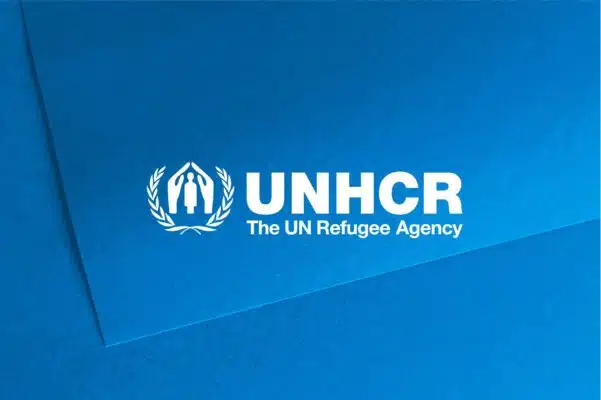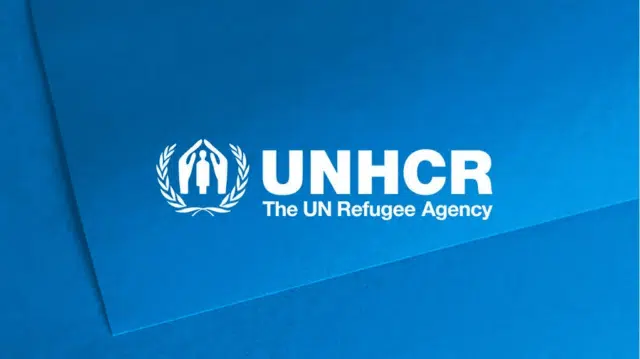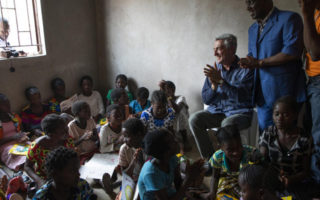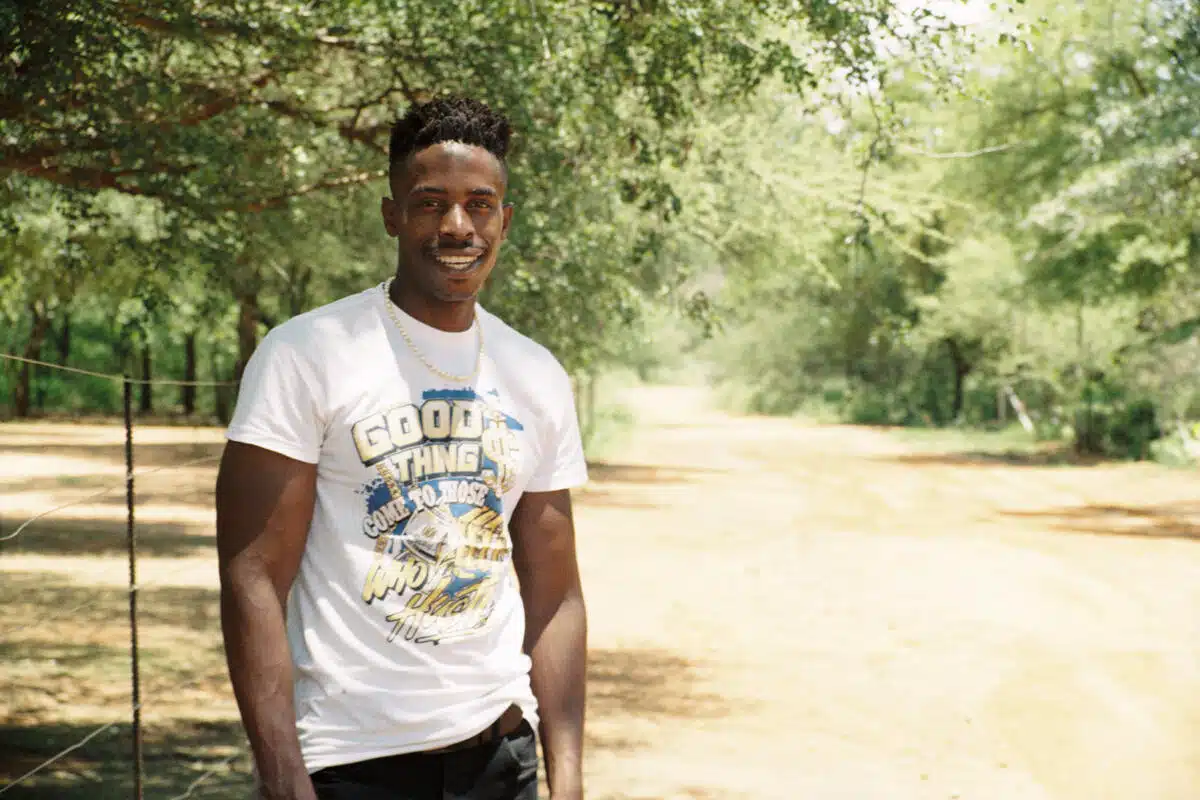
Tebogo Khoza fought a 10-year legal battle to be recognized as a South African citizen. © UNHCR/GR Pote
Years after Tebogo Khoza was refused an ID document, a high court judgement has restored his rights and offered hope to millions of other undocumented South Africans.
By Laura Padoan in Pretoria, South Africa
As a game keeper in South Africa’s Limpopo Province, Tebogo Khoza’s knowledge of the land and its wildlife is key to his livelihood and safety. Tending to the buffalo and impala on the reserve where he lives at the foot of the Ysterberg mountains, Khoza feels a sense of belonging that has been denied to him for most of his life.
Last year, at the age of 25, Khoza was finally issued with a birth certificate by South Africa’s Department of Home Affairs, marking the end of a 10-year battle to be recognized as a South African citizen.
Born at the edge of the Kruger National Park in Mpumalanga Province, Khoza was around 6 years old when his HIV-positive mother travelled to Limpopo to seek treatment from a sangoma (a traditional healer). When she had not returned after some weeks, he went with his grandmother to the sangoma’s house, only to find that his mother had died. “I was waiting for my mother to come out of the house,” he recalls. “But she never came.”
Never having known his father and unwilling to return to Mpumalanga without his mother, Khoza was taken to a children’s home.
“I didn’t have a birth certificate and I didn’t know my birthday. When I was about 13 or 14 years old, we approached Home Affairs to obtain documentation, but that’s when I found out that my grandmother didn’t have an ID either,” he says.
Legacy of apartheid
It is common for older people in South Africa to be undocumented, a legacy of apartheid-era policies that made civil and birth registration mandatory only for white South Africans. The consequence is that their descendants often struggle to access identity documents, leaving them stateless.
When Home Affairs came to interview Khoza’s family at home to determine their nationality, they arrested his grandmother, aunt and uncle, claiming that they were from Eswatini (formerly known as Swaziland) and should be deported. “They even took me to the Swazi border but when we got there, the border guards could tell from my immunisation scars that I was from South Africa,” he recalls.
At the age of 18, Khoza left the children’s home to work at a nearby game reserve, but was constantly afraid that without documents, he would lose his job. A keen athlete, he was selected to play for a local rugby team, but because he had no ID, he was unable to progress in the rugby league. He continued to train, running up to 10 kilometres a day on the red earth road leading to the nearby mining town of Thabazimbi. It helped to keep anxiety at bay in the years when he began to lose hope of ever receiving his documents.
When Khoza met his girlfriend, his stateless status meant their marriage could not be officially certified, and when the couple had a son, Junior, Khoza’s name could not be added to the child’s birth certificate. He felt that in the eyes of the law, he was invisible.
Case provides hope
Around the world, millions of people are denied a nationality. As a result, they often cannot go to school, access healthcare, get a job, open a bank account, buy a house or get married. The UN Refugee Agency’s #IBelong campaign seeks to end statelessness through a global plan made up of 10 actions. As the campaign comes to an end this year, UNHCR is set to launch the Global Alliance to End Statelessness – a multistakeholder platform that brings together governments, UN agencies, regional and civil society organizations, along with organizations led by stateless people, all sharing a collective commitment to eradicate statelessness.
Lawyers for Human Rights, a partner organization of UNHCR, pursued Khoza’s case and last year he was called to a hearing at Pretoria’s High Court. The judge declared that the Department of Home Affairs had shown itself to be “inflexible” and “oppositional” in its refusal to assist Khoza and ruled that he should have access to a birth certificate and citizenship.
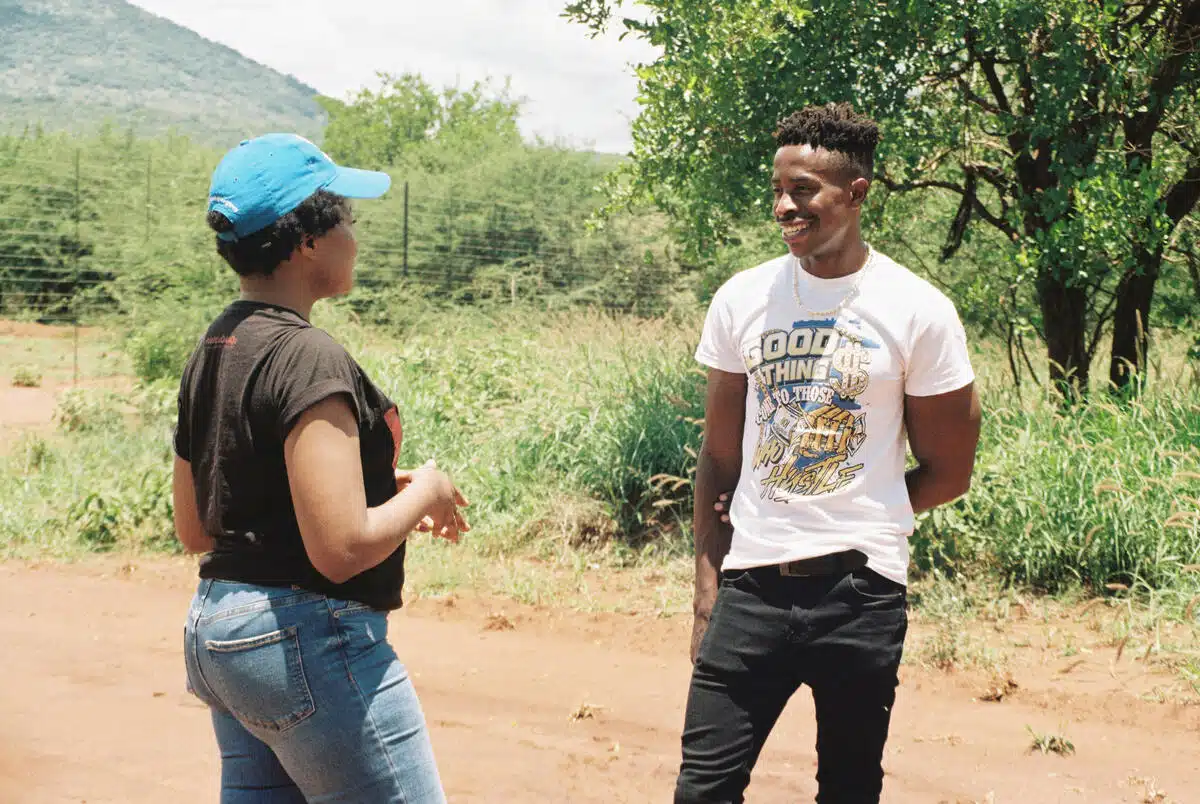
Tebogo chats to UNHCR Statelessness Protection Associate, Lusungu Kanyama Phiri. © UNHCR/GR Pote
The judgment provides clarity for the first time in South African law on the standard of proof to be applied in statelessness cases. The court adopted UNHCR’s recommendation that the burden of proof in determining whether an individual is entitled to legal identity and citizenship should be shared between the applicant and the decision-maker, and that a low standard of proof should be applied due to stateless people lacking supporting documentation. Khoza hopes that his case will provide hope for others in South Africa, where, according to the World Bank, it is estimated that up to 15.3 million people are undocumented.
To address the legacy of apartheid-era policies, the Department of Home Affairs has introduced a process whereby births can still be registered some years afterwards. The Department’s Deputy Director of Travel Documents and Citizenship Richard Sikakane says, “DHA has been working towards increasing birth registration for its citizens and updating guidance to ensure that vulnerable people do not fall through the cracks.”
“When I got my ID, I knew my life was going to be okay,” Khoza beams. However, the decision left him with mixed emotions. “I definitely felt happy, but I was angry at the same time. I have lost many things from the years without an ID. I felt that I could have had a different kind of life. But at least now, doors are open to me.”
Khoza and his girlfriend now have plans to marry and add his name to their son’s birth certificate. “Because of my experience, I know the importance of having both parents on a birth certificate. I don’t want my son to grow up like I did and have to fight to prove he exists.”
Just like his father, 6-year-old Junior is a fast runner and hopes one day to play rugby for the Springboks, South Africa’s national team. For the first time in at least three generations of his family, he will not be held back by lacking a nationality.
“When I got my ID, I knew my life was going to be okay.”
Tebogo Khoza
Originally publshed by UNHCR 22 February 2024



